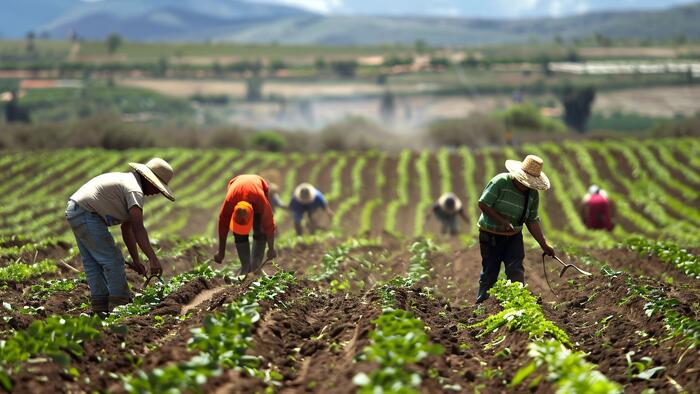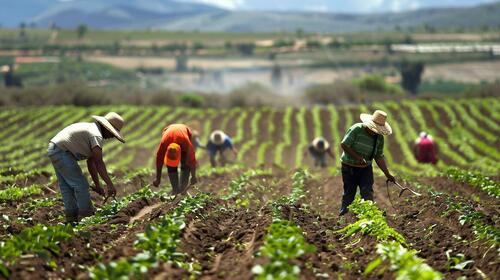


President Donald Trump on Thursday announced that he would use tariff revenue to provide aid to American farmers until his import levies start to benefit them - which he says is only a matter of time.
"We’re going to take some of that tariff money that we made, we’re going to give it to our farmers who are, for a little while, going to be hurt until ... the tariffs kick in to their benefit," Trump said from the White House. "We’re going to make sure that our farmers are in great shape, because we’re taking in a lot of money."
"Ultimately, the farmers are going to be making a fortune. But it’s a process - it has to kick in," Trump continued.
American farmers are struggling amid low wholesale prices and trade wars with Beijing - as China - the world's largest buyer of soybeans - has stopped buying them from the USA as negotiations with the Trump administration continue.
Last week GOP lawmakers warned that American farmers are in rough shape, and urged the Trump administration to take action similar to what happened in Trump's first term, when the government doled out at $23 billion bailout to farmers amid the previous trade war with China.
Those tariffs during Trump's first term resulted in a $27 billion loss in the US from mid-2018 through the end of the following year, according to the US Department of Agriculture - with soybeans accounting for nearly 71% of those losses - or around $9.7 billion annually.
Meanwhile, US Agriculture Secretary Brooke Rollins announced an investigation into suppliers of crop inputs, including seeds and fertilizers, over potential antitrust violations, Bloomberg reports.
The agriculture and the justice departments have signed a memorandum of understanding to “take a hard look and scrutinize competitive conditions in the agriculture marketplace, including antitrust enforcement that promotes free market competition,” Rollins said Thursday during a conference in Missouri.
Notably, the cost of key inputs such as fertilizers and tractors have spiked this year - in part because of the Trump tariffs, forcing farmers to feel the squeeze.
According to Rollins, the administration is concerned about "undue foreign influence" on the market, "especially given a significant portion of our fertilizer production is overseas."

